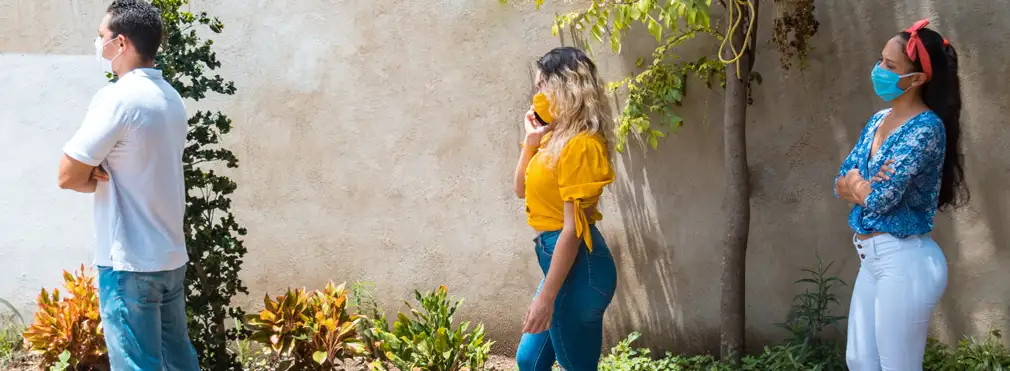Until a few weeks ago, many of us likely had never heard of the term “social distancing.” Social distancing simply means keeping a safe distance, likely about 6 feet or more, from others and avoiding gatherings with large numbers of other people. While social distancing is important for overall health and well-being of ourselves and others during this challenging time as our society responds to COVID-19, it can be an emotional challenge. Quarantine, which involves avoiding contact with others after one has been exposed to a virus like COVID-19, and isolation, which involves total isolation from others after a person has been diagnosed with COVID-19, are even more extreme and likely to cause psychological discomfort for those of us forced into those positions in an effort to protect others, particularly older adults and those with co-occurring chronic diseases.
There is very little psychological research about how to respond to these types of phenomena; however, we know that social isolation in general tends to cause emotional discomfort. While the amount of time before difficult feelings emerge varies across people, most of us will feel some discomfort after an extended period of social distancing. As human beings, we all need some level of social engagement. Without it, we might experience one or more of the following: anger, frustration, irritability, fear, anxiety, depression, boredom, or even stigmatization for having or having been exposed to COVID-19. Minutes, hours, days, and weeks tend to feel much longer when that time is spent alone.
The American Psychological Association (APA) has recently responded to COVID-19 with recommendations on how to cope with social distancing. Their recommendations are as follows ( see https://www.apa.org/practice/programs/dmhi/research-information/social-distancing for the full article):
- Limit news consumption to reliable sources. The news is always updating, but make sure that you balance your time spent on learning about COVID-19 with time spent in other areas of your life. The US Centers for Disease Control and Prevention (CDC), or World Health Organization (WHO), and similar agencies, update data regularly.
- Create and follow a daily routine. It might be helpful to try new hobbies, and engage in other activities even if from home, like exercise if indicated, reading, working (even if remotely), or learning something new.
- Stay virtually connected with others. Make sure that you are staying in contact with others through text, phone, email, video chats, or social media.
- Maintain a healthy lifestyle. Make sure that you prioritize sleep, get adequate nutrition, exercise if you are able to do so and it is recommended by your medical provider, and avoid alcohol and drugs.
- Use psychological strategies to manage stress and stay positive. Try to examine your thoughts and feelings like you would help a friend sort through thoughts and feelings. Focus on what is within your control. Keep a journal. Try something new, like mindfulness or meditation. Send something kind to someone else. Sometimes, we get so stuck in feeling lonely that we forget what is within our control. Reach out for help if needed.
Social distancing is temporary. It can be challenging, and can result in difficult feelings, but is worth it if we are able to help others who are more vulnerable. It’s normal to feel anxious, lonely, bored, or any of the other feelings mentioned. If you experience extreme distress, please make sure that you reach out to a mental health or behavioral health provider.
Lyn McArthur, PhD, is a licensed psychologist and the Behavioral Health Director at Health West Inc., which offers locations throughout southeastern Idaho. She is a graduate of Idaho State University. Dr. McArthur mostly sees individuals experiencing eating disorders.









